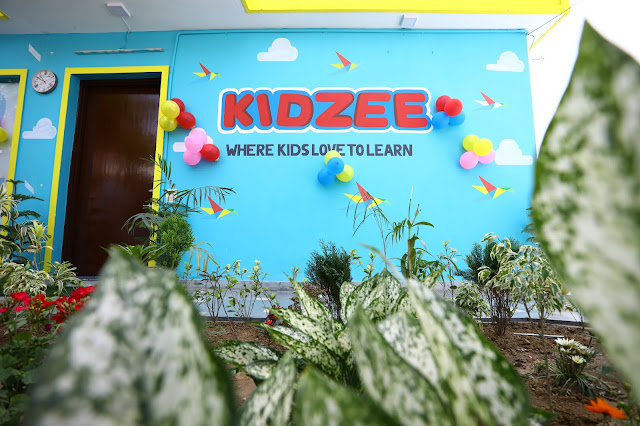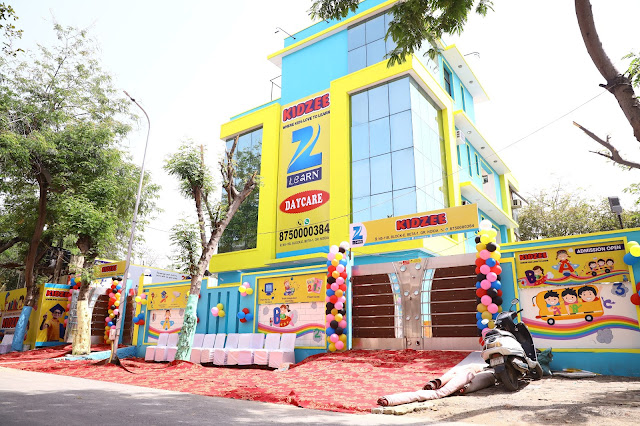Early Childhood Education
Shaping the Foundation for Lifelong Learning
Introduction
Early youth schooling lays the basis for a child's intellectual, social, and emotional development, setting the level for future learning and success. This complete manual explores the various factors of early life education, from its definition and importance to the distinct varieties of programs available, coaching methods, and their impact on a kid's typical development.
Understanding Early Childhood Education
What is Early Childhood Education?
Early formative years training refers back to the formal and casual education furnished to young kids, commonly between the ages of 0 and eight years before they enter primary college. It encompasses a variety of experiences that foster holistic development, including cognitive, social, emotional, and bodily growth.
The Importance of Early Childhood Education
Early childhood schooling is an essential segment of a child's life because it lays the foundation for destiny, knowledge, and development. During this era, kids are notably receptive to studying, making it an opportune time to nurture their curiosity and instill a love for learning. Quality early education experiences can improve instructional results, develop social talents, and increase overall well-being.
The Role of Parents and Careers
Nurturing a Supportive Environment at Home
Parents and Careers play a pivotal role in assisting early adolescent schooling. Creating a nurturing and stimulating home environment helps broaden a baby's curiosity, creativity, and trouble-fixing competencies. Engaging in significant interactions and sports with the child similarly complements their cognitive and emotional growth.
Parental Involvement in Early Learning
Active parental involvement in a toddler's early acquisition of knowledge about adventure may profoundly impact their improvement. Engaging in sports that include studying, storytelling, and educational play can beef up the parent-toddler bond while fostering vital talents.
Types of Early Childhood Education Program
Preschools and Nursery Schools
Preschools and nursery schools offer established mastery stories for younger children. These packages focus on growing social competencies, early literacy, numeracy, and creative expression through play-based sports.
Montessori Education
The Montessori method emphasises baby-led mastery, individuality, and independence. It presents youngsters with hands-on materials and freedom of choice, promoting self-directed mastery and exploration.
Reggio Emilia Approach
Originating in Italy, the Reggio Emilia approach centres on the kid's pursuits and promotes experiential getting to know through inventive expression, collaboration, and project-primarily based activities.
Waldorf Education
The Waldorf schooling philosophy emphasises resourceful play, creative expression, and a holistic method of schooling. It encourages a balanced improvement of cognitive, emotional, and bodily faculties.
Curriculum and Teaching Methods
Play-Based Learning
Play-based studying is at the coronary heart of early youth schooling. Through play, children expand their problem-solving capabilities, creativity, and social competence. Educators create playful environments that stimulate curiosity and exploration.
Social and Emotional Development
Early life training focuses on nurturing social and emotional abilities, together with empathy, cooperation, and self-rule. These talents form the building blocks of wholesome relationships and emotional intelligence.
Cognitive Development
Stimulating cognitive development entails introducing age-appropriate sports that assign kids questioning skills and inspire logical reasoning and essential thinking.
Language and Literacy Skills
Developing language and literacy talents is fundamental to early adolescent training. Educators use storytelling, reading, and language-rich sports to beautify vocabulary and conversation.
The Impact of Early Childhood Education on Development
Cognitive Development
Early childhood training positively affects cognitive improvement by imparting a solid academic foundation and fostering a love for learning, leading to improved cognitive capabilities later in life.
Social Skills and Emotional Intelligence
High-satisfactory early training helps youngsters develop social abilities, empathy, and emotional intelligence, preparing them for successful social interactions and emotional well-being.
Language and Communication
Early exposure to language-rich environments helps with language improvement, leading to higher communication and comprehension abilities.
Addressing Inclusivity and Diversity in Early Childhood Education
Creating Inclusive Learning Environments
Early childhood educators must create inclusive and inviting lecture rooms where all kids feel valued and revered, regardless of their backgrounds or talents.
Embracing Diversity in the Classroom
Incorporating various perspectives, cultures, and reports into the curriculum enriches the learning environment and promotes a deeper knowledge of the world.
Early Childhood Education and Technology
The Pros and Cons of Technology in Early Education
While the era can beautify getting-to-know studies, educators have to strike a balance to ensure that it complements, not replaces, fingers-on getting-to-know.
Finding a Balance
Integrating generation thoughtfully into the curriculum can provide opportunities for interactive knowledge and ability development.
Professional Development for Early Childhood Educators
Continuous Learning and Training
Continuous expert improvement equips early adolescent educators with modern coaching techniques and strategies to offer extraordinary training.
Staying Updated with Best Practises
Remaining informed about current research and first-rate practises enables educators to provide the handiest and most evidence-bbased learning experiences.
Challenges in Early Childhood Education
Access and Affordability
Ensuring the same gets entry to fine early life education remains a project, especially for disadvantaged groups.
Quality Assurance and Standards
Maintaining consistent quality requirements throughout early adolescent training packages requires ongoing tracking and assessment.
The Future of Early Childhood Education
Innovations in Early Education
Advancements in era and educational studies will preserve and shape early life training, leading to modern coaching approaches.
Adapting to Changing Needs
Early life training will allow one to adapt to the evolving desires of future generations, getting youngsters ready for a swiftly converting global.
Conclusion
Early adolescent training is a cornerstone of a baby's development and sets the stage for lifelong learning and fulfillment. By offering a supportive and engaging environment, fostering social and emotional abilities, and nurturing a love for learning, the early formative years of schooling shape the destiny of our society.





Comments
Post a Comment